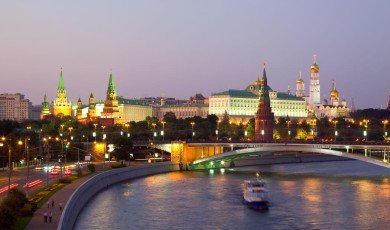
When the World Shifts: How Global Events Shape Our Daily Lives
From geopolitics to pandemics, every global event sends ripples we can feel in our own routines. Discover how the changes on the world stage impact your daily life and what you can do to adapt.
Introduction
In our increasingly interconnected world, the phrase "think global, act local" has taken on deeper meaning. Gone are the days when international events seemed distant and disconnected from our personal lives. Today, a decision made halfway across the globe can influence the way we work, the foods we eat, how we travel—even the air we breathe. As global events unfold with unprecedented speed and scale, their impacts on our daily lives become more immediate and profound.
This blog post explores the intricate ways in which worldwide events—be it economic crises, political upheavals, health emergencies, or climate change—extend beyond headlines and shape the fabric of everyday life for individuals and communities. Understanding these dynamics is essential, not only to adapt effectively but also to make informed choices in an ever-evolving world.
Main Research: The Far-reaching Impact of Global Events
1. Economic Tremors Reach Every Wallet
One of the most tangible ways global events affect our lives is through the economy. Consider, for instance, a major disruption in the oil supply due to conflict in a key exporting nation. The result? Rising fuel prices that affect everything from your daily commute costs to the price of goods on store shelves. Similarly, international trade disputes can lead to tariffs and shortages, causing everyday items to become suddenly expensive or scarce.
The global financial crisis of 2008 is a stark reminder of this interconnectedness. Originating from the collapse of the US housing market, its ripple effects felled banks, ballooned unemployment rates, and led to recessions across continents. Even those far removed from Wall Street felt the pinch: tighter lending, job insecurity, and a shift in consumer confidence. In today's digitally linked markets, even subtle fluctuations can cause global aftershocks, prompting people everywhere to rethink their spending and investments.
2. Health Pandemics: The Global Becomes Personal
Never has the phrase "we are all in this together" rung truer than during the recent COVID-19 pandemic. What began as a localized outbreak rapidly cascaded into a global health crisis, altering the rhythm of daily life across continents. From the sudden pivot to remote work and virtual learning, to shifting norms around hygiene and public gatherings, the pandemic's reach was ubiquitous.
Beyond direct health implications, pandemics reshape everything from supply chains and travel to mental health and social dynamics. For example, global medication shortages have led to local rationing, and international travel restrictions have separated families and disrupted businesses. Moreover, the pandemic underscored disparities in healthcare access, prompting a broader dialogue about global health equity.
3. Climate Change: Global Shifts, Local Consequences
Perhaps no issue better exemplifies the global-local connection than climate change. The increase in extreme weather events—hurricanes, wildfires, floods—has immediate and often devastating impacts on local communities. Rising sea levels threaten coastal towns while prolonged droughts imperil agriculture, water supply, and food security.
On a more granular level, climate change is influencing everything from the cost of groceries to the type of clothing we keep in our closets. For instance, disruptions in coffee or cocoa production due to changing weather patterns can alter the price and availability of our favorite treats. Air quality advisories, once rare, are now a regular feature in local weather forecasts. As individuals, we find ourselves reconsidering transportation options, energy use, and consumption habits in response to a changing planet.
4. Social and Political Movements: Changing the Pulse of Communities
Mass protests and social movements fueled by global events have also become catalysts for local change. The #MeToo movement, sparked by revelations in one part of the world, ignited conversations—and policies—on every continent. The fight for racial equity in the US reverberated globally, inspiring solidarity marches and legislative reforms elsewhere.
In an age of social media, movements cross borders at digital speed. Local communities increasingly reflect and respond to global dialogues, whether in the classroom, at the workplace, or on the street. This global awareness not only broadens perspectives but also empowers individuals to become agents of change within their own spheres.
5. Technology and Information: The Accelerator of Change
Technological advancements, often driven by global collaboration or competition, continually redefine daily routines. Innovations such as 5G connectivity, renewable energy, and artificial intelligence are shifting the way we communicate, work, and entertain ourselves. At the same time, global cybersecurity threats prompt changes in personal behaviors regarding privacy and digital safety.
The proliferation of instant information has made it easier than ever to stay updated on global events. However, it also means misinformation can travel just as quickly, influencing opinions, behaviors, and decisions in real time. The need for media literacy and critical thinking has, therefore, never been higher.
6. Migration and Mobility: We’re All Global Citizens
Global events—be they economic, environmental, or political—often drive migration. Conflicts push populations across borders, while economic opportunities draw individuals toward global hubs. This movement reshapes not only the demographics of destination areas but also their culture, cuisine, and economy.
For individuals, this can mean new neighbors, expanded culinary offerings, or a more diverse workforce. While migration introduces opportunities, it also comes with challenges, including the need for greater cultural awareness and social integration at the local level.
Conclusion: Embracing Global Awareness in Everyday Life
The boundaries between "global" and "local" are increasingly blurred. From the price of everyday products to our health, jobs, and social relationships, global events—both sudden and gradual—shape our lives in complex, sometimes unexpected ways. Being aware of these influences not only helps us adapt more effectively but also empowers us to respond with empathy and resilience.
So, how can you embrace this reality and turn global shifts into personal growth?
- Stay Informed: Rely on credible news sources and diversify your information to get a holistic view of world events.
- Think Critically: Question headlines, seek context, and engage in discussions about how global issues play out on the local stage.
- Be Adaptable: Flexibility is key in times of change. Whether it’s learning new skills, adjusting your budget, or modifying routines, adaptability breeds resilience.
- Engage Locally, Impact Globally: Participate in community initiatives that respond to global challenges, from climate action to social justice campaigns.
- Amplify Empathy: Recognize the shared humanity beneath world events and offer support to those more affected by global shifts.
As global tides continue to reshape the world, one thing is certain: we may not control the waves, but we can learn to surf. By fostering awareness, adaptability, and compassion, we not only weather the storms of change but also contribute to building a more connected, resilient, and understanding world. The next time you read about a world event, remember—its story is also, in some way, yours.








